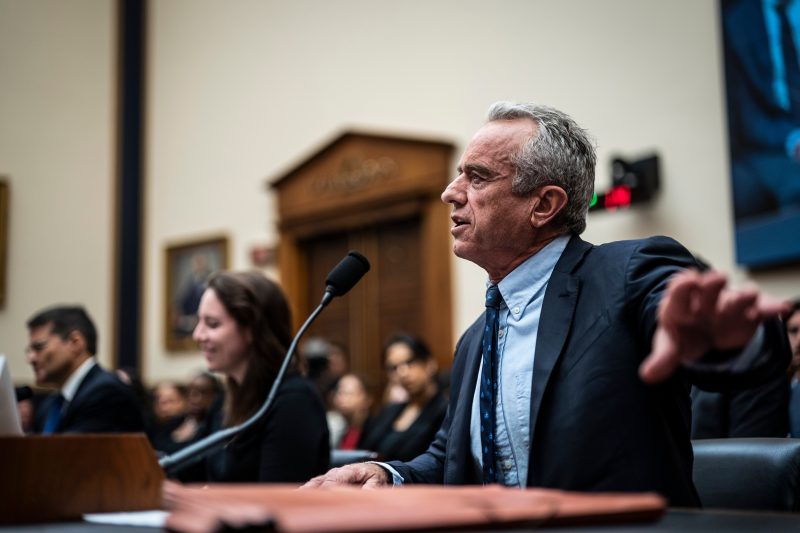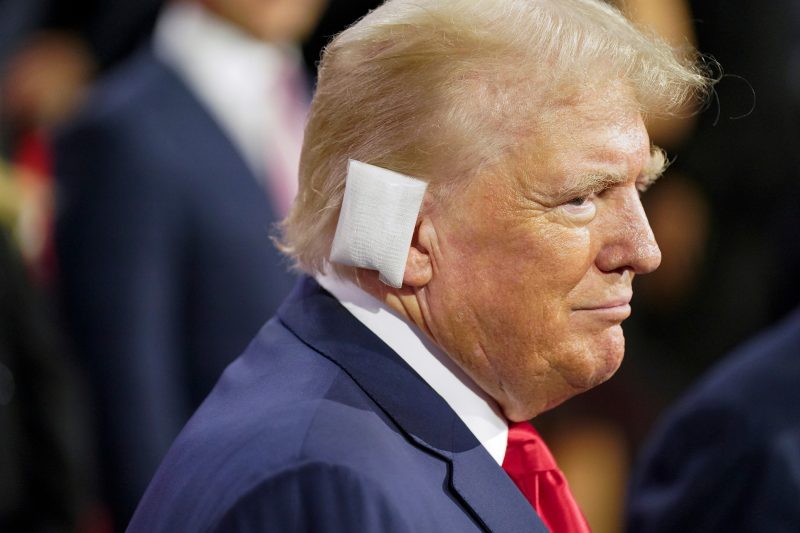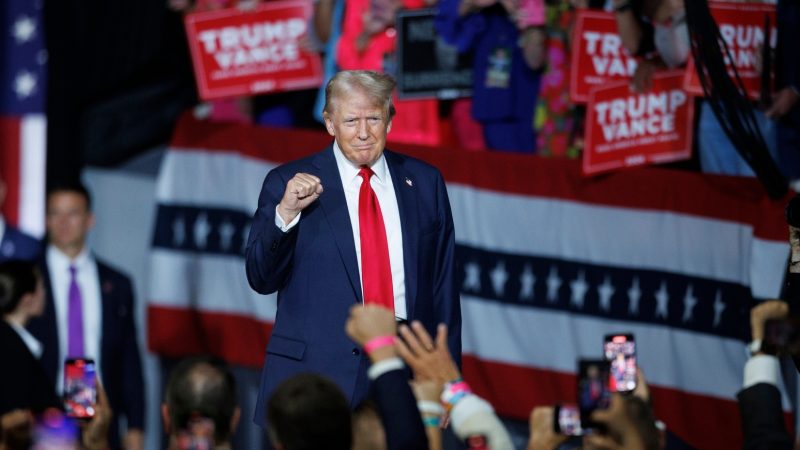
RFK Jr. Super Bowl ad highlights the paradox that is his campaign
Robert F. Kennedy Jr.’s third-party presidential campaign has polled historically well as an abstraction. And a super PAC supporting him spent millions of dollars Sunday on a Super Bowl ad seeking to capitalize on that abstraction.
The ad from the super PAC may have been many Americans’ introduction to Kennedy’s 2024 campaign. And to the extent the ad actually featured content, it was: Did you know he’s a Kennedy? The ad borrowed heavily from John F. Kennedy’s 1960 campaign advertising, effectively inserting the former president’s nephew in his place. Robert F. Kennedy Jr. apologized to the many family members who don’t support him (but he was still featuring the ad on his personal X account when this post published).
The controversy is one thing. The strategy is another. The ad highlighted a counterintuitive circumstance — that the voters most likely to wax nostalgic for the Kennedy era are the least likely to view this Kennedy favorably.
YouGov polling last month showed no combination of age and party affiliation had less regard for Kennedy Jr. than Democrats 65 and older — in other words, the Democrats who were alive when John F. Kennedy was elected president. They disliked Kennedy Jr. by a 67-point margin. The next most anti-Kennedy group? Democrats ages 45 to 64, who disliked him by a 20-point margin.
RFK Jr. also gets a boost because while he’s unpopular among Democrats, he’s only KIND OF unpopular among Democrats — unlike politicians like Trump or DeSantis who have few Democratic admirers.
There’s one exception, though: older Democrats do not like RFK Jr. *one bit*. pic.twitter.com/fGWNYwWI0y
— David H. Montgomery (@dhmontgomery) January 19, 2024
By contrast, as you’ll notice from the above chart, every group of Republicans had a favorable view of Kennedy. We noted when he was switching from the Democratic primary to an independent run that this has long been a feature of his poll numbers — Republicans liking him a lot more than Democrats. This led to some fear among Kennedy’s most prominent Republican-oriented boosters (who transparently wanted him to embarrass President Biden in the primaries) that his candidacy could wind up hurting Trump.
Today, despite the numbers cited, it’s less clear that’s going to be the case. Kennedy is still significantly more popular among Republicans, but he appears to be pulling about evenly from both parties. The vast majority of his support comes from independents. Trump tends to do slightly better in polls that include third-party candidates, but that might owe more to left-leaning candidates Cornel West and Jill Stein.
And here’s another factor. Yes, Republicans like Kennedy more. But the Republicans who like him a lot tend to be aligned with Trump, and they already have a candidate (Trump).
A recent NBC News poll showed twice as many Trump voters said they would consider backing Kennedy (45 percent) as Biden voters who said the same (22 percent). But virtually every poll shows similar numbers of Republicans and Democrats actually backing Kennedy, and a recent University of Massachusetts-YouGov poll showed equal numbers of Biden 2020 and Trump 2020 voters supporting Kennedy (6 percent apiece).
Similarly, a recent Quinnipiac University poll showed Kennedy pulling about evenly from Trump and Biden, but he would pull way more from the GOP nominee if it were Nikki Haley. While Trump ceded just 7 percent of Republicans to Kennedy, Haley ceded 24 percent.
What it all means is that you’re likely to see a very concerted effort to define Kennedy in the 2024 race. Democrats will point to his conspiracy theories about vaccines and his ties to Trump supporters; Republicans will point to his more liberal policies (as Utah Sen. Mike Lee did Sunday while praising Kennedy’s ad).
It appears likely that Kennedy’s vote share will fall away as the election nears, as is almost always the case with third-party candidates. But if he’s anywhere near the double digits he currently draws in polls, the political lean of the voters who stick with him could be hugely consequential.
Consider the Super Bowl ad a starting point for that clash.



